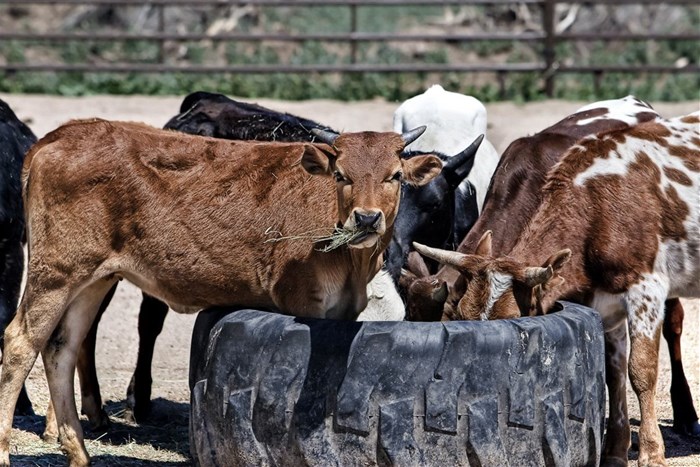Following the continued incidences of extreme heat and numerous veld fires across the Western Cape, Dr. Ivan Meyer, the Western Cape Minister of Agriculture, is advising the agricultural sector to take the necessary measures to safeguard lives, livestock, crops, and agricultural infrastructure.
My first concern is for agri-workers, producers and farmers who are daily exposed to harsh climatic conditions. Climate change is having a dramatic impact on our weather patterns and in extreme conditions poses a threat to the lives of our agri-workers and producers. I urge those working in the agricultural sector to take the necessary steps to minimise the impact of these extremely hot conditions and fires," says Minister Meyer.
Minister Meyers adds that with the support of the national government and the South African Weather Services (SAWS), relevant early weather warnings are distributed as and when needed to all stakeholders.
Ashia Petersen, director: sustainable resource use and management with the Western Cape Department of Agriculture (WCDoA), provided the following advice on what to do when veld fire conditions are forecast:
"During high fire seasons, the establishment of fire control committees is essential and open-air fires are strictly prohibited. In general, an alarm system, firefighting teams and plans must be prepared in advance to mitigate the impact of a wildfire. It is extremely important to know the contact details of the closest fire/emergency response unit," remarks Ashia Petersen.
During veld fires, farmers should:
Move livestock to safety and out of grazing land to ploughed fields.
• If water is not available in sufficient quantities or at adequate pressure for the control of major fires, sand or other loose mineral soil material can be an effective method of control.
• Ensure that a firebreak is reasonably free of inflammable material capable of carrying a veld fire across it.
• Farming communities should establish fire protection associations to prevent and control veld fires as required by the National Veld and Forest Fire Act (Act No.101 of 1998).
• Insure crops/ livestock against financial loss due to fire damage.
• The Fire Brigade Services Act provides for the establishment, coordination, and standardisation of fire brigade services.
Petersen warns that that during extremely hot conditions animals may suffer heat stress, adding: "Heat stress occurs when an animal is unable to dissipate heat or becomes overwhelmed and the animal’s performance or health suffers as a result."
Heat stress can greatly impact cattle producers through decreased milk production and subsequent calf growth, decreased reproductive performance in livestock and decreased stocker and feeder performance.”
The WCDOA offers the following advice to livestock and crop farmers:
• Identify animals that are most susceptible to heat stress.
• Develop an action plan for heat stress.
• Animals in heat stress need to drink water.
• Move the animals’ feeding time to late afternoon or evening.
• Provide shade if possible. Air movement also promotes animal cooling.
• Cool the ground and the animals gradually and add bedding to the ground (this will reduce the ground temperature).
• Control flies as much as possible.
• Do not work cattle during extreme temperatures.
• Pay attention to long and short-term weather forecasts and keep a copy of the temperature humidity index chart handy.
• Insure crops/ livestock against financial loss due to heat stress.
• Do not irrigate during the day as more water will evaporate, instead irrigate early in the morning.
• Select heat and drought-resistant crops for the region and area in which you are farming.
• Use mulch to minimise evaporation.
"The WCDoA recognises the impact of climate change and disasters on the agricultural sector. The increase in both the frequency and intensity of disasters has necessitated the need for the department to focus on disaster risk reduction and mitigation strategies. The department will continue to work closely with District Disaster Management Centres, the Provincial Disaster Management Centre and Organised Agriculture to ensure that farmers receive the necessary support when dealing with disasters,” concludes Minister Meyer.
Access the WCDoA’s fact sheets on fire and heat here.





























































